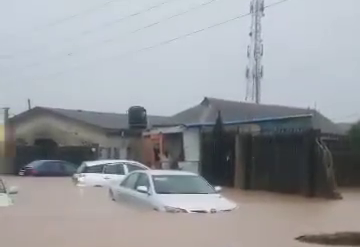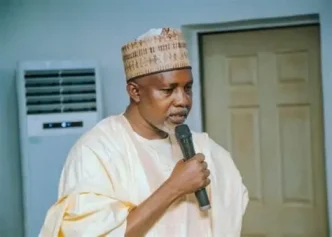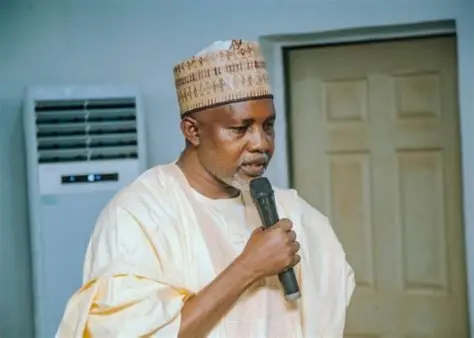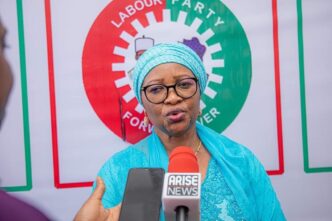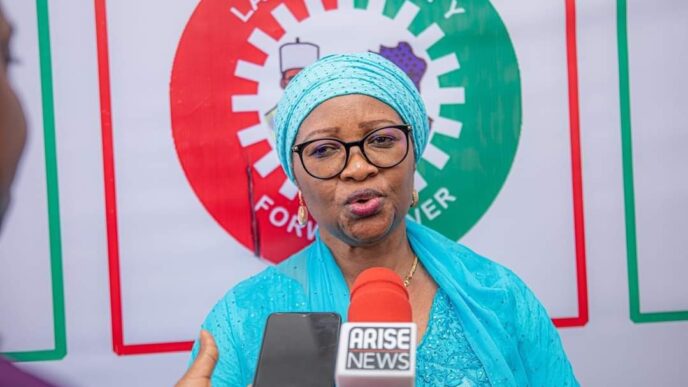A house of representatives committee says flooding is a major national emergency in the country and requires coordinated action to tackle the menace.
Midala Balami, chairman of the ad hoc committee on flood management and response, spoke in Abuja on Monday during the panel’s inaugural meeting.
Since the onset of the rainy season, widespread flooding has ravaged several communities across the country, displacing thousands of residents and destroying properties worth millions.
The lawmaker said tackling flooding in the country requires a “coordinated and strategic” effort to nip it in the bud.
Advertisement
“As we are all aware, flooding has become a recurring and devastating challenge across many parts of our country,” Malami said.
“Each year, lives are lost, properties destroyed, livelihoods disrupted, and the socio-economic fabric of entire communities severely affected.
“This is no longer a seasonal inconvenience—it is a national emergency that demands urgent, coordinated, and strategic action. The establishment of this ad hoc committee reflects the commitment of the 10th house of representatives to addressing this crisis head-on.”
Advertisement
He said the committee’s mandate includes investigating the root causes, assessing the preparedness and response mechanisms of relevant agencies, engaging stakeholders at all levels, and recommending sustainable and actionable measures to mitigate the impact of flooding across Nigeria.
“We understand the weight of this task. But we are equally driven by the urgency to make a difference. We shall work diligently, collaboratively, and transparently,” he said.
Balami said the committee will listen to the victims, interface with experts, and ensure its report provides a blueprint for lasting solutions.
“What we need is a comprehensive national framework that encompasses prevention, early warning systems, emergency response, community resilience, infrastructure development, and climate adaptation strategies,” he said.
Advertisement
Tajudeen Abbas, speaker of the house, said flooding in recent years has “brought untold hardship to communities, destroyed livelihoods, and undermined development efforts” across many parts of Nigeria.
Represented by Julius Ihonvbere, majority leader, the speaker said the parliament is committed to addressing any matter that bothers Nigerians.
“We are equally committed to deploying legislative frameworks that will help mitigate the devastating effects of natural disasters within our land,” he said.
Abbas said the committee was established in recognition of the rising frequency and severity of floods across the country, which he noted “have caused significant damage to many of our fellow citizens, including loss of lives and property”.
Advertisement
“We cannot afford to treat this matter with levity. The house expects this committee to identify both the immediate and long-term measures required to prevent loss of lives and property, while recommending a clear roadmap for national preparedness and resilience,” he said.
“Flooding goes beyond being a mere environmental issue but is also an economic, social, and humanitarian challenge. Every year, thousands of families are displaced, farmlands are submerged, and critical infrastructure is washed away. These tragedies demand deliberate and well-coordinated responses.
Advertisement
“The work of this committee must, therefore, draw from scientific data, community experiences, and the knowledge of relevant experts so that our nation can move from reactive to preventive strategies.”
He advised the committee to ensure inter-agency collaboration with relevant stakeholders, noting that effective flood management requires collaboration between federal and state agencies.
Advertisement
Abbas asked the committee to pay special attention to the legislative gaps that may hinder effective flood response in Nigeria.
Advertisement
